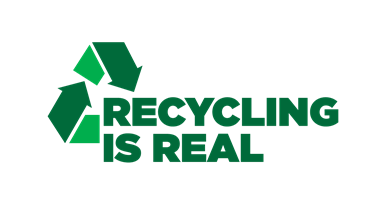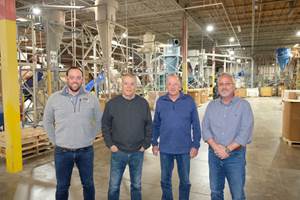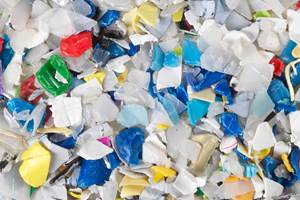Industry Association Campaign Centers Workers Who Recycle Plastic
Advocacy campaign videos present policymakers with a view of plastic recycling as a manufacturing process from those who do it.
The Plastics Industry Association has announced an advocacy campaign titled “Recycling is Real,” to present recycling as a manufacturing process and show some of the recyclers, converters and equipment suppliers who work to remanufacture plastics. Videos featuring Ultra-Poly, Novolex, Placon and MAAG have been released, with additional videos to follow. Matt Seaholm, president and CEO of PLASTICS, spoke with Plastics Technology about the strategy and goals of the campaign.
PT: There seems to be a intentional choice in these videos to get into the manufacturing environment and show people doing things. Can you tell us why?
M.S.: What we wanted to achieve is to show recycling being done, and give voice to the people who do it. When you see it, it’s much harder to accept the idea that recycling is not happening. And recycling is not something that happens when you put it in the bin, it takes separation, collection, sortation and reprocessing. And if you get the material to the right place, it can be done.
Our target audience is policymakers. We want them to know that recycling can be done and will be done.

Advocacy campaign draws attention to the companies that are reprocessing materials.Credit: Plastics Industry Association
PT: Regarding the economic feasibility of recycling, and given what we have seen with pricing in the past several months, can recyclers really grow and compete with virgin resin?
M.S. Not in the status quo, there are things that need to happen. A lot of it is going to be improving efficiency and working together to figure out how to recycle more. But erosion of faith in the system is blocking that.
EPR policies (extended producer responsibility) can make an important contribution if done correctly. Recycled content requirements can create a stable end market, such that investments can be made. The industry is committed to identifying solutions that keep plastics out of the environment.
PT: Is the recycling rate as a % of plastics production (estimated by the EPA as 8.7% in 2018, prior to the impacts of National Sword and COVID-19) an appropriate measure of success, and what should we see in the coming years? Should we hope to maintain that or see it increase by some amount?
M.S. The rate needs to go up. We have big problems in sorting and collection. We need to make it convenient for consumers with curbside programs. Many MRFs (material recovery facilities) are operating older technologies that have not kept up with changes in plastic packaging, The industry needs partners, because we do not control the whole process. We need to surround the table with people who understand that recycling can work and that industry is ready and willing.
PT: Does recycling address plastic pollution and how?
M.S. Yes. The greater the value plastic waste has, the less likely it is to get into the environment. That’s why bottle deposit programs work. In places where they have been implemented, they make a big difference in the collection rate. If a material has value, people will find a way.
Related Content
Breaking News From NPE2024
Here is a firsthand report of news in injection molding, extrusion, blow molding and recycling not previously covered.
Read MoreEvolving Opportunities for Ambitious Plastics Recycler
St. Joseph Plastics grew from a simple grinding operation and now pursues growing markets in recycled PP, food-grade recycled materials, and customized post-industrial and post-consumer compounds.
Read MoreExtrusion Technology Extended to Injection, Enabling Up to 100% Regrind Usage
Twin-barrel (shot-pot) press can handle more regrind, offers other benefits to molders.
Read MoreLooking to Run PCR on a Single Screw? Here’s What to Keep in Mind
Just drop it in and mix it up? Sorry, there’s a lot more to it than that. Here is some of what you need to consider.
Read MoreRead Next
See Recyclers Close the Loop on Trade Show Production Scrap at NPE2024
A collaboration between show organizer PLASTICS, recycler CPR and size reduction experts WEIMA and Conair recovered and recycled all production scrap at NPE2024.
Read MorePeople 4.0 – How to Get Buy-In from Your Staff for Industry 4.0 Systems
Implementing a production monitoring system as the foundation of a ‘smart factory’ is about integrating people with new technology as much as it is about integrating machines and computers. Here are tips from a company that has gone through the process.
Read MoreBeyond Prototypes: 8 Ways the Plastics Industry Is Using 3D Printing
Plastics processors are finding applications for 3D printing around the plant and across the supply chain. Here are 8 examples to look for at NPE2024.
Read More















